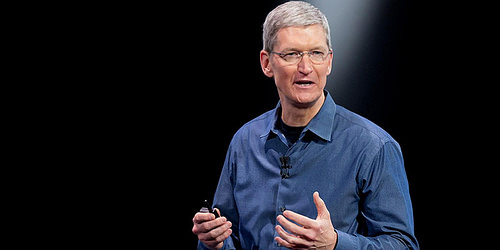Apple is under fire from critics but this time it’s not for a hardware or software mishap. Instead, the company is being sued by the U.S. federal government to compromise the security of its users by creating a means of bypassing encryption on its iPhone mobile phones.
At issue in the dispute is the smartphone of Syed Rizwan Farook, the man at the center of the 2015 terrorist attack in San Bernardino, California which killed 14. Before his death, Farook had enabled full device encryption on his iPhone 5c and locked it with a password that law enforcement officials have been unable to break.
Even though both Farook and his wife were both killed during their assault on his work colleagues, investigators say they need access to his phone in order to understand to what extent he may have been working with Islamic terrorist organizations.
At present, both Apple and Google, the makers of the software that powers most of the world’s smartphones, do not have the means of bypassing full device encryption. Should Apple be compelled to create software update that would enable the company to bypass the encryption, it would endanger the privacy and freedom of people across the world.
Apple CEO Tim Cook expressed the dangers of this idea quite well in a press release issued earlier today on the company’s website:
“The government suggests this tool could only be used once, on one phone. But that’s simply not true. Once created, the technique could be used over and over again, on any number of devices. In the physical world, it would be the equivalent of a master key, capable of opening hundreds of millions of locks — from restaurants and banks to stores and homes. No reasonable person would find that acceptable.”
While that warning ought to be concerning enough for everyone, there is an even greater danger of forcing Apple to create an encryption override: there is no reason whatsoever that countries like China would not be entitled to the software. As the New York Times noted earlier today, China has long been pushing electronics manufacturers to divulge encryption keys for devices that are sold within the country. Besides being an authoritarian government that imprisons and kills political dissidents to this day, China is also the world’s leading sponsor of cybercrime.
There’s no telling what giving a software backdoor to the Chinese government would do. Millions of people’s information the world over would be at risk and Chinese dissidents could potentially have their lives and liberty endangered.
But the risks don’t just end there. Given China’s active involvement in cyberterrorism and its numerous connections to unethical hackers, there’s no reason to assume that once China gets access to encryption override software that it wouldn’t give the program to the thousands of hackers it employs to engage in cyberterrorism. Forcing Apple to hack its own users could quite literally enable criminals and dictators the world over to steal identities and crush political dissedents. And even if China were somehow never to share that knowledge, there’s no reason that once a backdoor mechanism is created that independent hackers couldn’t figure out how to open it on their own.
Tim Cook and Apple are standing up for freedom and security by challenging the government’s wrongful demands.
While the goal of finding out more about Syed Rizwan Farook is an admirable one, the San Bernardino massacre investigation is a perfect example of the old lawyer’s adage that hard cases make bad laws. Even if the U.S. government were never to abuse the software backdoor it seeks currently, the likely repercussions of the request are far too dangerous for it to be allowed by a court. In the digital age, encryption is an essential freedom that democratic governments must protect.

